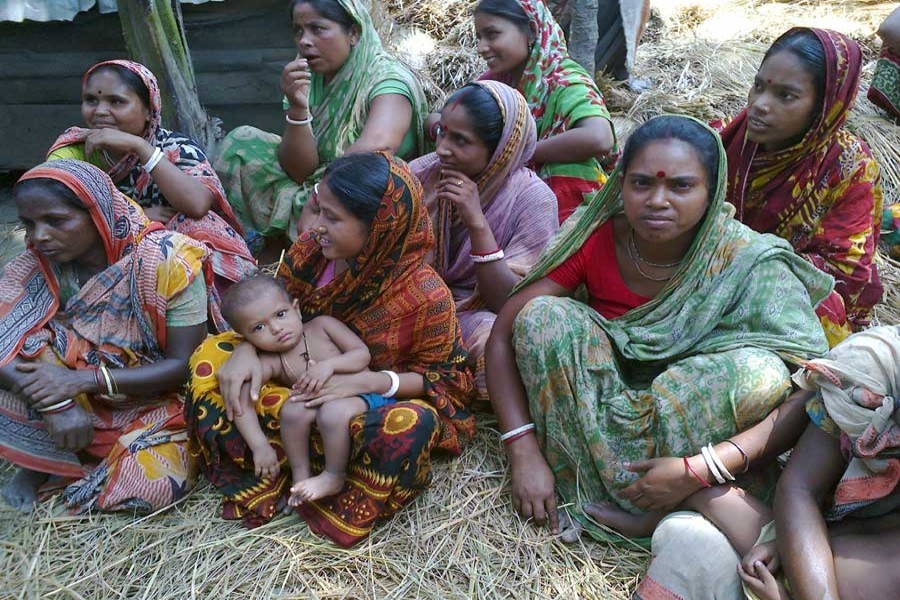Can we recall the situation of immediate post-liberation period in Bangladesh? Serious economic disruption threw a gigantic challenge to the government needing to put the economic wheels of the country on an even keel. The refugees and war victims were to be provided with food and rehabilitation assistance for their survival and existence. The government as well as non-government agencies came forward to give such succor.
Soon international and local NGOs came forward to put in use their first generation strategy - relief and rehabilitation for the refugees and war victims. The relief and rehabilitation assistance strategy had to be gradually replaced by community development and sustainable system development strategies for the development of the poor, disadvantaged and marginal people. And over the period, a sustainable system grew to meet the challenges of providing micro and small credit to those who could not access the formal financial institutions to meet their financial needs to participate in the economic activities for augmenting their income, consumption, savings and small-scale investments.
In 2020, the global Corona pandemic has seriously affected almost every state economically and socially. Bangladesh as well has not been able to escape the curse. This has disrupted the economy so seriously that the poor, disadvantaged and marginal people are the worst victims. The government has begun to provide economic stimulus to the affected people and institutions. Yet the situation demands special attention to the poor, disadvantaged and marginal people for their existence by facilitating them to engage in economic activities so that they are again able to take care of themselves without relief and rehabilitation help from the government and the social philanthropists.
The existential economics is not to be viewed as a new variant of economics. It is rather an approach to stop the falling demand and stimulate the demand of the poor, disadvantaged and marginal people through the support of appropriate institutions competent enough to deliver services to them. This economics is targeted to those who face difficulties to access formal financial services. The Covid 19 crisis has seriously impacted the peripheral economy by shrinking economic and commercial transactions, thus resulting in low income or no income for the affected people, particularly the poor, disadvantaged and marginal ones. These transactions can be enhanced if the workless and jobless people are engaged in economic activities, thus assisting them to earn their own income. While reduced number of transactions results in reduced income, income expansion and credit to the people go a long way to multiply transactions and improvement in the economy.
Under the sustainable system development strategy, a good number of NGO-MFIs (micro-finance institutions) in Bangladesh have been successfully providing financial inclusion services to those who are unable to access this financial service from the formal financial institutions. They have proved their worth and capability by their effective service delivery mechanism to the poor. They mainly deliver financial services to this segment of people. As these people are engaged in such economic activities which do not put them to face the marketing challenges for their products, the risk of credit recovery is always negligible. Along with their financial inclusion services, many of them are providing services aimed at sustainable human development like education, healthcare and so on.
These NGO-MFIs do not have the freehand in their service delivery; they have to work under the surveillance of Micro-credit Regulatory Authority (MRA). The service charges for their financial services are determined by this regulatory body and it is mandatory for them to adhere to the determined rate. The cost of service is the principle while determining the service charge. As foreign donation cannot be a sustainable funding source to provide financial fuel necessary for financial inclusion services, stable funding support is now available from PKSF and other local financial institutions. They have an apex body-- CDF (Credit and Development Forum). This organisation collects, preserves and publishes micro-credit data and all other relevant information for use by all relevant stakeholders and performs host of other services. So, a sustainable system has emerged over a long period.
Covid 19 pandemic has come as a global challenge. In the past, we have seen that despite disastrous impact on life and livelihood, human effort to fight such challenges was never defeated. This time too, it will overcome the pandemic block. The agriculture-rural domestic economy of Bangladesh has the potential to absorb the pandemic shock to a great extent. Perhaps, wise decision from the government and other concerned agencies to salvage the affected economy by resorting to existential economics can be a good solution to the problem. NGO-MFIs can contribute significantly in improving the socio-economic situation by their effective delivery mechanism. They can be trusted as an appropriate ally of the government and people.
Shajahan Bhuiya is a development professional and columnist.


